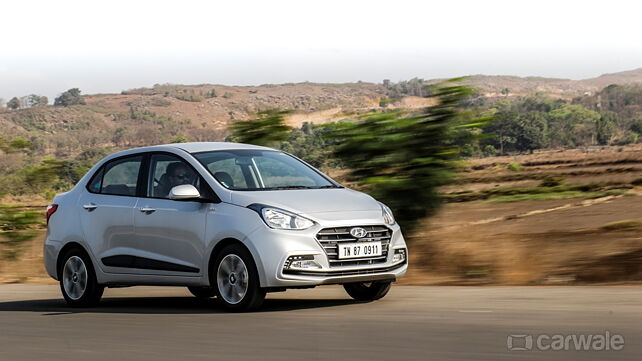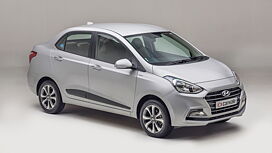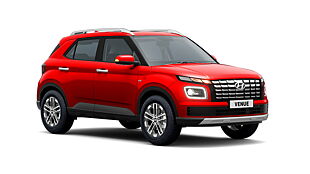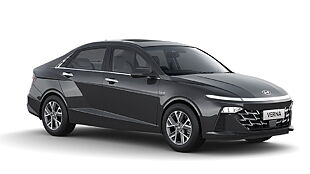What is it?

The Xcent is Hyundai’s answer to the hot selling Maruti Suzuki Dzire. But, while the latter sells over 15,000 units a month on an average, the Hyundai doesn’t even manage to ship 3,000. And there are two main reasons for that. The bigger issue with the Xcent has been its styling; not only did it look identical to its hatch sibling, the Grand i10, from the front, it also had an uninspiring looking rear end.
The second problem, which is a more recent one, is the high off-take for the car in the taxi segment. This has clearly affected the desirability aspect of the compact sedan among private car buyers. Now, one might argue that the Innova and the Dzire remain unaffected by this ‘yellow plate’ crisis, but then, the Xcent just isn’t as strong a brand as the latter two.
To address this Hyundai has now launched the 2017 edition of the Xcent complete with revised front and rear end styling and a few additional features. At the front, while the headlamps remain the same, a complete change in the bumper design means the tiny upper grille disappears but the lower grille gets larger and is now adorned with chrome. The bumper design too, especially around the fog lamp area is now more aggressive. The fog lamps are new and alongside it, sit the new LED DRLs, which only come on when you shift into gear.

At the rear, longer units that resemble the ones on the Toyota Camry replace the small tail lamps. Hyundai hasn’t stopped there, however, and has completely redesigned the rear bumper as well as the boot lid. The end result is a pleasant one with the new Xcent coming across as more presentable now, particularly from the rear. The new car gets the new 1.2-litre diesel engine too. We have sampled this diesel unit in the Grand i10 and we quite liked it. Here’s a more in-depth look at the new car.
How is it on the inside?

Not much has changed on the inside of the 2017 Hyundai Xcent. The dash, the vents, the various buttons, and even the stowage spaces remain unchanged. It retains its large cooled glovebox too. The new Xcent uses the same large multifunctional steering as well with the only addition being a voice activation button. It is still only adjustable for rake, by the way. The seat fabric design is new, but otherwise in terms of cushioning, support and seating comfort, it is identical to the older car. So, it’s still reasonably comfortable to spend long hours in both front and back.

What’s significantly new though, is the infotainment system. Like on the Grand i10, the new system gets a wider touchscreen and comes with Apple CarPlay and Android Auto. The latter mirrors a few functions of your phone on the screen simplifying access to related apps on the move. The new system besides offering Bluetooth connectivity and various audio input options, also doubles up as a reversing camera screen. Earlier, the Xcent used an inside rear-view mirror integrated screen which was too small to offer a clear view.

Otherwise the feature list for this top of the line variant remains the same with single zone climate control, rear AC vents, rear parking sensors, electric ORVMs with fold function, a basic trip computer, and keyless entry and start.
How does it drive?

Our test car is powered by the new 1.2-litre diesel. It’s a three-cylinder engine that makes 75bhp. But, thanks to the additional torque compared to the older 1.1-litre engine, it hauls the Xcent around with more ease. It isn’t exactly quick. But, the improvement in drivability is significant. It makes driving the new car in the city and out on the highway a more relaxing affair.
The turbo lag is less pronounced, the throttle response is crisper and the car now requires less shifts to keep the desired pace. The new engine works best between 1,600 to 4,000rpm. Revving it higher is a bit pointless, as things only get louder with no meaningful increase in the rate of progress. The gearshifts meanwhile are short throw and precise and the clutch is light too, which works well in bumper-to-bumper traffic.

Given that Hyundai hasn’t bothered with other mechanical changes on the new Xcent, the ride and handling remains almost the same as before. The ride is still plush at low speeds, and with decent visibility and maneuverability, the Xcent makes for an easy car to live within the city. But, the soft suspension setup doesn’t cope very well with the increase in speed.

The ride gets noisy, and the Xcent – its rear in particular, even without being loaded – does wallow more than we would like. Not that it feels unstable or loose, but it lacks the planted feel of some of its competitors. It’s the same story when it comes to handling bends. The Xcent doesn’t feel sharp or nicely balanced to take on switchbacks at speed – the mute steering doesn’t help here either – but it isn’t wayward or scary in any way. It’s just not very interesting to drive quickly.
Should I buy one?

Hyundai is calling this one a stylish family sedan for the young and modern Indian family. Phew, that is a very long tag line. But, the good news for Hyundai is that the new Xcent comes close to justifying it. It’s more stylish that before, yes. And since it can seat four (yes, the seats are comfy too), it’s good for a nuclear family. As for the young and modern, well almost every car in this class now has a similar feature / tech list. So, there’s no real USP there. Our suggestion would be to buy it if you are looking for a no-nonsense car with good service backup.
Where does it fit in?

The new Hyundai Xcent has been launched at Rs 8.41 lakh for the diesel SX (O) trim which we are reviewing. The range though, begins at Rs 5.38 lakh and Rs 6.28 lakh for the petrol and diesel E variants, respectively. This puts the new Hyundai in striking distance of the two cars that are leading the compact sedan class in terms of sales, the Dzire and the Honda Amaze. The Dzire is cheaper while the Amaze is a little more expensive. The Dzire is everywhere, whereas the Amaze is a little more exclusive. But finally, like the new Xcent, you can’t go wrong with either.
Photos by Kapil Angane
Click here for on-road prices of 2017 Hyundai Xcent range

































